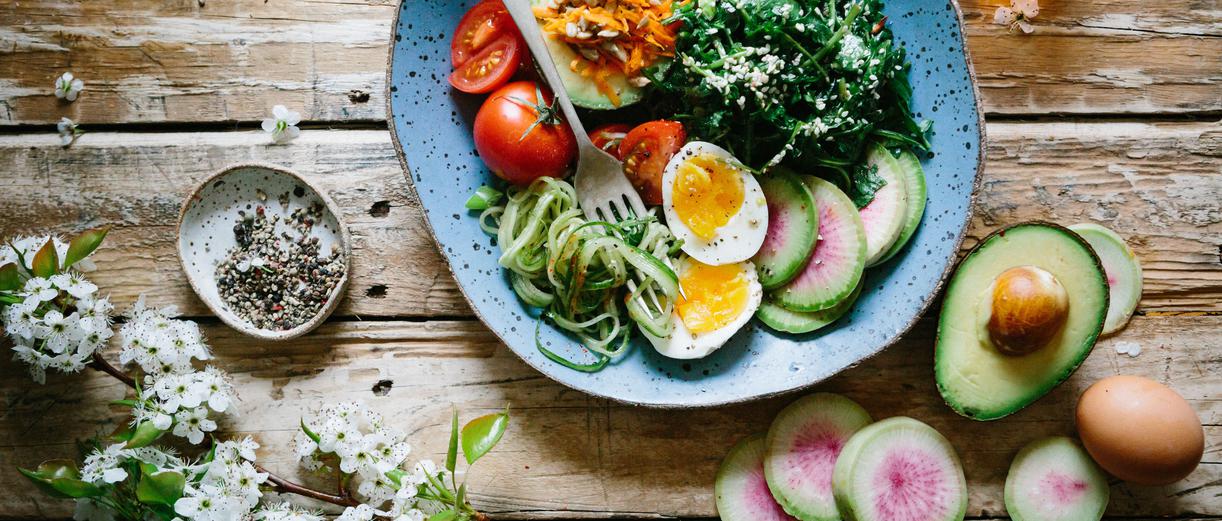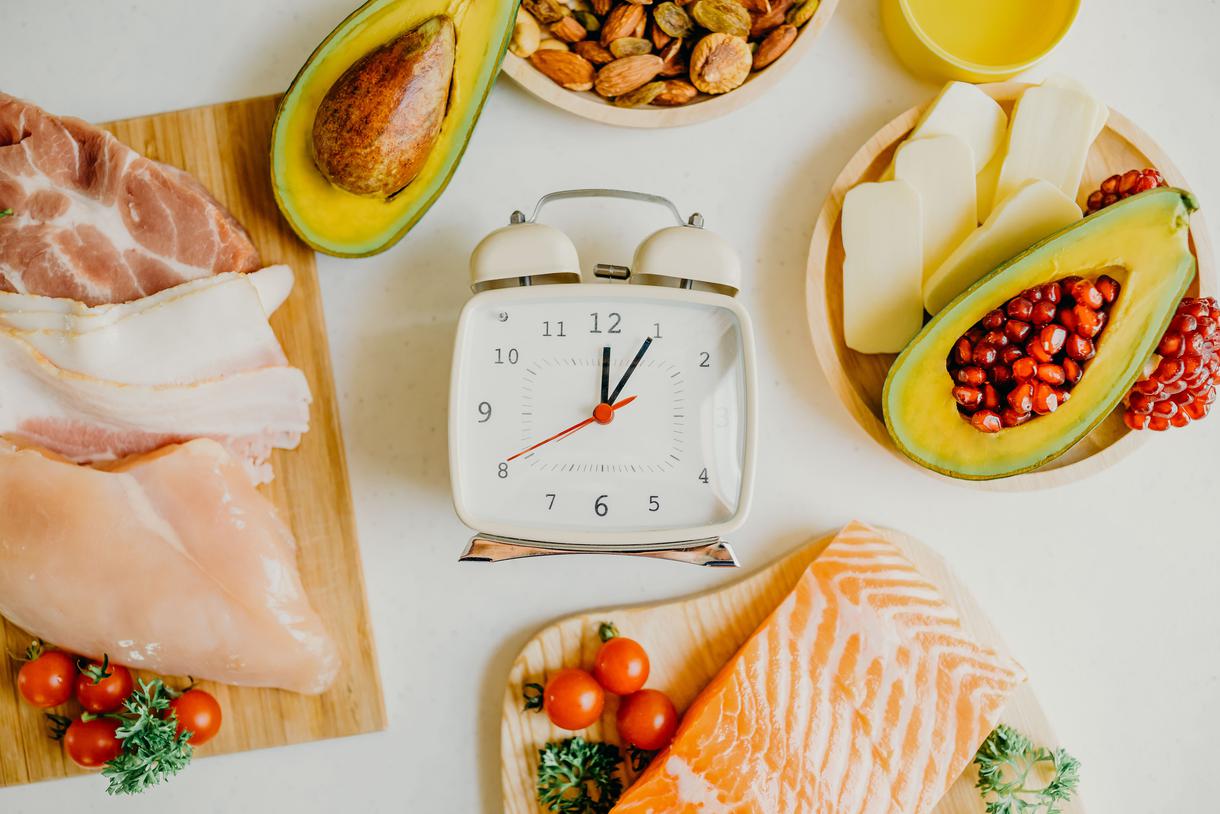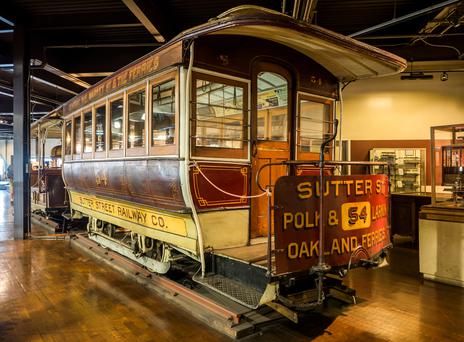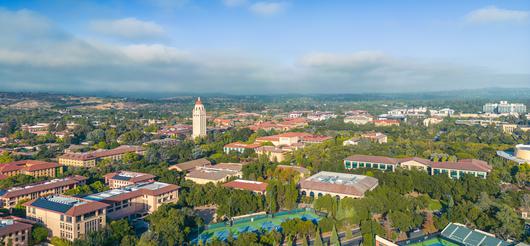5 Things to Do in Little Tokyo, California
Never been before? We’ll be your trustee Little Tokyo guide with a day’s worth of fun things to do in Little Tokyo.

I tried intermittent fasting to see what all the hype was about. Here's what happened to me, plus some tips for trying it yourself.
You’ve likely heard about it and seen it on every influencer page, medical newsletter, and magazine spread. Yes, it’s the diet trend that took 2019 by storm: intermittent fasting. This timed approach to eating claims to be the next gateway to optimal health, but you may be wondering, What’s it really like? How can it fit into my everyday routine along with balancing work and a social life?
Well, I tried it to see what all the hype was about, and after doing it for a solid week, I’m sharing my journey, intermittent-fasting tips, and overall take on this increasingly popular way to improve health.
First, let’s get down to what intermittent fasting really means. Intermittent fasting describes the cycles and patterns between periods of consuming and not consuming calories. Observing and manipulating these cycles have sparked the interest of medical professionals and wellness junkies alike—and for good reason. Some of the health benefits associated with intermittent fasting include weight loss, mental clarity and focus, heightened energy, and reduce insulin levels.
Fasting is also known to cause your body to go into a state of ketosis. Often associated with the popular keto diet—a high-fat, very low-carb diet—ketosis occurs when the body starts feeding off of the fat in your body since you are not consuming any carbs. This state helps to boost weight loss and lower blood sugar.


Does your business rank among the best in California?
nominate a businessLearn more about our selection criteria and vetting process.
So, how does one get started on such a seemingly beneficial lifestyle change? The most common way to fast is restricting your eating to a 6- to 8-hour window of the day (this means fasting for 16 to 18 hours a day). This is the type of intermittent fasting I recommend to beginners like myself instead of the 24- or 48-hour fasts people sometimes incorporate once a week.
There are also a few ground rules when it comes to what you are able to eat during your fasting period. Here’s the rule of thumb: Everything you consume during the fast must be under 50 carbs combined. This means staying away from cream in your tea or coffee and making sparkling water your new best friend. Some fasting participants consume bone broth to get extra nutrients and curb their appetite as well.
With all of these benefits and rules in mind, I decided to put my love for all things breakfast aside and restrict my food intake to between 12:30 and 7:30 p.m. I’m sharing what it’s like to be a fasting newbie at what I consider the most important—and difficult—times during your first week of intermittent fasting: fasting on the first day, fasting during the workweek, and fasting when you have plans on the weekend.
Do note that intermittent fasting is not for everyone; consult your doctor before starting intermittent fasting, especially if you have existing medical conditions.
8:30 a.m.
I figured I would start off this journey on a Sunday so I can test the waters before integrating intermittent fasting into my weekday routine. I ended up sleeping in until around 8:30 a.m. and eagerly downing a glass of water to curb my immediate hunger.
9:30 a.m.
A cup of black coffee fueled my morning while I started to cross things off of my seemingly endless to-do list to prep for the week ahead. I was able to accomplish a large amount of cleaning and laundry (with the occasional hunger pang) until I looked up from my chores and realized I had hit my 12:30 p.m. finish line.
12:30 p.m.
I needed to go grocery shopping, so I timed my trip to Whole Foods precisely so I could sit down and devour my hot-bar meal of chicken and roasted veggies right on cue. To my surprise, this meal left me satisfied through the afternoon.
6:30 p.m.
I started cooking my dinner earlier than usual, knowing I had to finish my meal by the 7:30 p.m. deadline. I efficiently planned and prepped the ingredients beforehand so I could simply toss some chicken lettuce wraps together and eat them before the fasting period started again.
7:15 a.m.
It was my first day fasting during the workweek, so I knew this was going to be interesting. I started my day as I usually do, but I saved extra time by not making and eating breakfast. I grabbed my black coffee as I headed out the door on my way to the office.
8:30 a.m.
Not having food the entire morning leading up to lunch was tough. I had a good amount of work to do but not enough distraction to quiet my growling stomach eager for sustenance. To help curb this hunger and make it through, I gathered some fasting advice from my reliable pal Google and opted for some herbal tea to keep my taste buds busy until the afternoon hit.
12:30 p.m.
Leftovers have never tasted as good as they did after a 17-hour fast—and when I say that, I mean I truly enjoyed and was satisfied with what I ate.
3:30 p.m.
This is about the time when I usually reach for a snack to tide me over until I get off of work. I opted for a high-protein snack in the form of peanut butter and apples rather than my usual chips or other savory snack.
6:30 p.m.
I was really looking after myself last night and left a fridge full of prepped dinner ingredients so I could toss together a chicken burrito bowl in a flash. This saved me from coming home starving and eating every snack in my whole kitchen.
9:00 a.m.
I made plans with one of my best friends to spend some time in San Francisco. I leisurely drank my black coffee, checked my emails, and got ready for the day before hitting the road and meeting up with her.
11:00 a.m.
I made sure to bring a protein bar with me on my way out the door, because I knew it would hit 12:30 before we reached the city and I would want something on-hand to eat quickly to avoid getting hangry. I’m glad I brought it, too. The snack was convenient, sweet, and kept me on track even though I was on the go.
3:30 p.m.
Wow, was I glad I brought that bar. We ended up running into some travel troubles and were not able to reach food until a few hours later.
7:20 p.m.
Since we had such a late lunch, froyo seemed like the clear choice for indulging in something before I start my fast once again.
Overall, I think that although it was challenging at times, intermittent fasting was something that surprisingly made a difference in not only how I feel during the day, but also how I look at food. I feel as though I was placing much more value on what I was putting in my mouth since I was restricting my eating to a smaller window of my day. I also felt a change in how much I was eating at one time.
What I liked about intermittent fasting the most is the fact that unlike a lot of the diet trends that are out there, this one health trend requires the least amount of work. There’s only one main rule to intermittent fasting: restricting eating to a certain time frame. This made me more successful in seeing it through, because I did not need to constantly be thinking of different restrictions or various rules throughout the day.
So, will I continue to make intermittent fasting part of my daily routine? I’ll for sure do it when I can. I think the high energy and the fresh perspective on what I consume make continuing intermittent fasting worth it. But I do believe it is important to also skew your fasting according to plans you have with friends or to other events you have in your life, so you won't catch me missing out on fun things because of it.

After hearing my take, would you try intermittent fasting? If so, consider these tips for success:
1. Stay Hydrated: Be sure to stay full of fluids during fasting to maintain energy and curb hunger.
2. Make Seltzer, Tea, and Coffee Your Friends: These beverages tremendously helped to keep hunger at bay and keep my taste buds happy.
3. Be Prepared: If you know that it may be tricky to eat something once your fast ends, keep a protein bar or other high-protein snack with you so you can break your fast whenever you need to, wherever you are.
4. Keep Yourself Busy: The more things you have to do while fasting, the less time you have to think about eating—and feel the hunger pangs.
5. Consult Your Doctor: If you have any dietary or health concerns, talk to your doctor before starting any intermittent-fasting routine.


Never been before? We’ll be your trustee Little Tokyo guide with a day’s worth of fun things to do in Little Tokyo.

If you're looking for something fun to do, there are plenty of fun and free things to do in San Francisco, use our guide to help make plans.

Feel the knowledge flood from its elegant red-tile roofs as you wander the town’s beautiful college campus in search of hidden finds.

Enjoy the perfect California spring weather at these ideal spots for a spring vacation in California.

